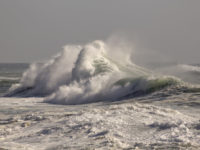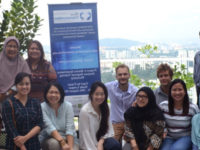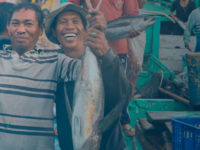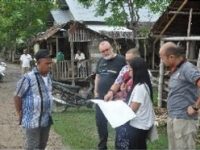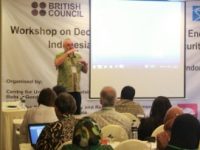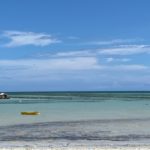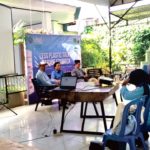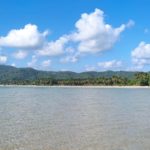Indonesian Marine Energy Network Ignition, 2015
Donor: British Council Newton Fund Institutional Links supported by Marine Geological Institute – Ministry of Energy and Mineral Resources (MGI-ESDM)
Amount of funding: 78,000 GBP
Project partners: Robert Gordon University (RGU), Institut Teknologi Sepuluh Nopember (ITS), Indonesian Counterpart for Energy and Environmental Solutions (ICEES), Centre for Sustainable Energy and Resources Management (CSERM-UNAS)
Project objectives:
- Initiation of an Indonesian/UK marine energy network to disseminate technological, social and business mechanisms that accommodate environmental, cultural and social constraints in coastal communities
- Engagement with communities and leveraging support from international business for communities beyond Central Java, e.g. Aceh, West Papua and Nusa Tenggara
- Expansion of existing discrete networks in Indonesia and development of links between provincial governments/universities and community groups, and Indonesian/UK businesses
Project summary:
As a maritime country, Indonesian seas stores enormous potential, not only as a producer of various kinds of marine products but also energy that can be converted into electricity at a significant scale. The renewable energy resources consist of offshore wind, ocean waves, tidal rise and fall, marine currents, ocean thermal, and salinity gradients.
Whilst the national electricity company (PLN) has a mandate to supply all of Indonesia’s communities with a reliable and consistent source of electricity, it has significant challenges in achieving 100% coverage, particularly in remote areas, many of which are small maritime communities. Many of these remote communities have large marine energy potentials that can be utilised to meet their local demand for electricity supply, as well as for fish/shrimp farming, algae cultures, water desalination, refrigeration, etc. Despite this opportunity, the utilisation of marine renewable energy in Indonesia is still very low.
We have identified that the obvious but surmountable barrier to energy development in these remote regions is the availability of appropriate technology, which performs the required function, at the desired location, for the people who need it, at an affordable cost and can be built, maintained and repaired using local capability – so that maximum benefits can stay in the local population.
The main focus of this programme is the optimum utilisation of marine renewable energy resources, especially for remote coastal areas in Indonesia for the benefit of the local, indigenous communities. To carry out this programme, we have identified three areas in Indonesia, with marine energy resources potential and embedded stakeholder network in the area. These include: (1) Aceh representing Western Indonesia, (2) West Nusa Tenggara representing Central Indonesia, and (3) West Papua representing Eastern Indonesia.
Documentation:

Aceh: Action research undertaken in marine energy, and community engagement in Pulau Weh, Ujung Pancu, and Lampanan

Aceh: Site Survey

East Lombok, West Nusa Tenggara: Field team and local community performing seabed survey

East Lombok, West Nusa Tenggara: Site assessment of available infrastructures and local capabilities

Raja Ampat, West Papua: Discussion with FFI and local partners

West Papua: Site assessment and community engagement in Warimak Village

West Papua: Site assessment and community engagement in Waifoi Village

West Papua: Site assessment and community engagement in Wawiyai Village

West Papua: Site assessment and community engagement in Sawinggrai Village


